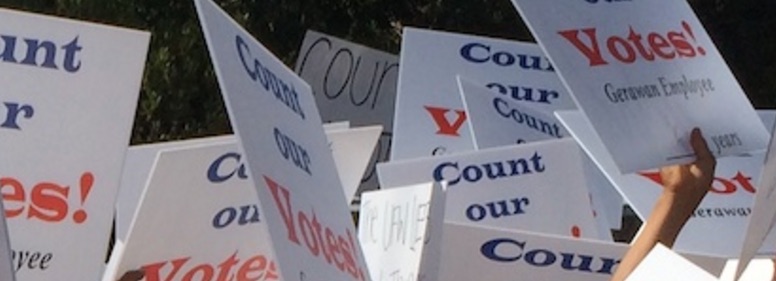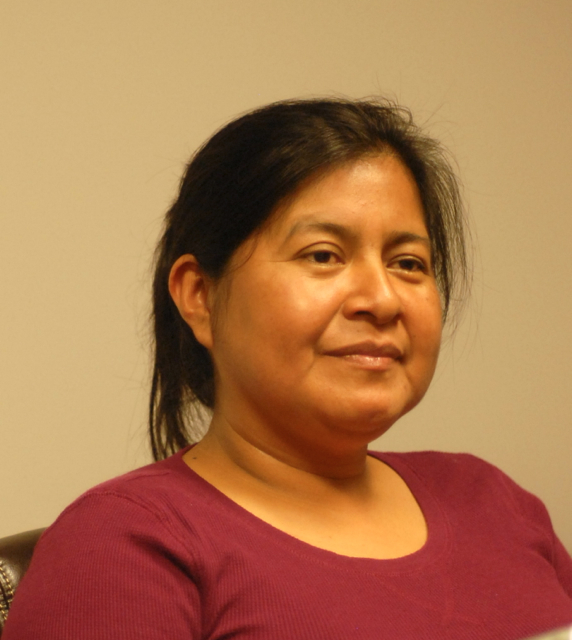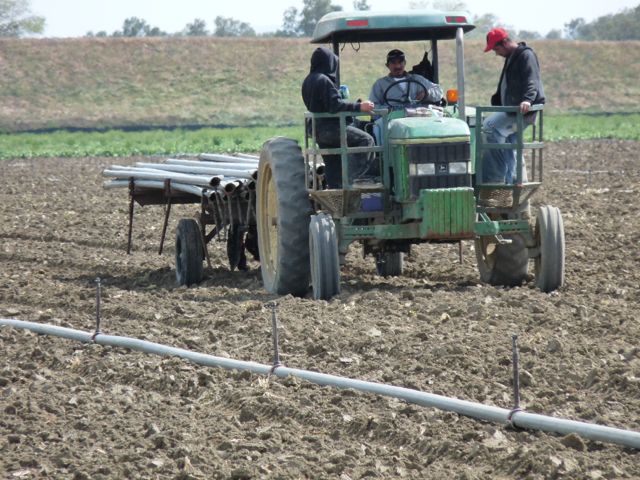Who Safeguards California Farm Workers’ Rights?
Mudslinging in the Field
By Laurie Greene, Founding Editor
In his 1984 Address to the Commonwealth Club of California, American labor leader and civil rights activist Cesar Chavez explained that he cofounded the National Farm Workers Association, the forerunner to UFW, in 1962 “to overthrow a farm labor system in this nation which treats farm workers as if they were not important human beings.” Yet recent developments among United Farm Workers (UFW), Agricultural Labor Relations Board (ALRB), Gerawan Farming, Inc. and farm workers illustrate the continuing, increasingly complex quagmire that masquerades as protecting California farm workers’ rights.
ALRB Chairman William B. Gould IV, who resigned on January 13, wrote to Governor Jerry Brown that the Agricultural Labor Relations Act (ALRA) is irrelevant to farm workers because they are unaware of the law’s provisions, procedures and rights.
“The instances of unfair labor practice charges and invocation of the Mandatory Mediation and Conciliation Act (MMC) are few and far between,” Gould explained. “There is no union organizing which might make workers aware of the [ALRA].” He added that only one union representation petition was filed during his 3-year tenure.
Nevertheless, under Gould’s watch, the ALRB doubled both its staff and taxpayer-funded budget to harass Gerawan and its farm workers.
Remarkably, on March 26, Monterey County Superior Court Judge Thomas Wills ruled that the UFW underpaid their own employees. Consequently, UFW must pay a $1.2 million award that includes funds to plaintiff former UFW employee Francisco Cerritos and other internal organizers, sums to other members of the class action suit for pay stub violations and penalties for California Labor Code Violations.
“It’s unfortunate that a union asks for laws to be respected,” plaintiff Cerritos said, “but [the union does] not respect them.” The UFW, Cesar Chavez’s legacy, has shortchanged its own workers.
Furthermore, ALRB whistleblower Pauline Alvarez, a 30-year former ALRB field examiner, filed a retaliation lawsuit in 2015 against the ALRB, which is still pending in Sacramento Superior Court. According to a February 27 Gerawan press release, Alvarez alleges that she recommended to former ALRB chief counsel Sylvia Torres-Guillén the dismissal of cases in which the UFW failed to cooperate and provide witnesses and evidence to support its allegations. Alvarez claims Torres-Guillén directed her and other field examiners “to dredge up witnesses that would assist the UFW’s position.”
Alvarez also asserts that she protested the settlement of farm worker cases against the UFW that contained sufficient evidence to establish UFW violations of the law. Stunningly, she affirms that the ALRB refused “to notify workers of their rights to file charges against the UFW when the UFW violated the workers’ rights,” and the “ghostwriting” of the UFW legal brief by the ALRB staff.
Perhaps most astonishing, the ALRB withheld this whistleblower’s report from ongoing legal proceedings with Gerawan and Gerawan farm workers for seven months.
Most recently, ALRB Administrative Law Judge William L. Schmidt issued a decision on April 14 in favor of the UFW, finding Gerawan violated labor law by negotiating a collective-bargaining agreement with UFW “in bad faith”— commonly called “surface bargaining”— in the eight-month period from January 2013 through August 2013.
To explain this decision in context, the UFW was voted in by Gerawan farmworkers in a runoff election in 1990 and certified by the ALRB in 1992. Significantly, UFW never reached a contract to represent Gerawan farm workers in wage negotiations with their employer. Neither did the UFW collect dues from or provide services for the farm workers, reportedly among the highest-paid in the industry.
The UFW effectively abandoned the Gerawan farm workers – that is, until 2012, after the California State Legislature amended the Agricultural Labor Relations Act to allow and accelerate an imposed mandatory mediation and conciliation process for union contracts. Thus, UFW offered a new contract proposal, via imposed mandatory mediation, to Gerawan farm workers.
Meanwhile, during the same time period in which Gerawan supposedly negotiated with UFW in bad faith, Gerawan farm workers were actively collecting signatures to petition the decertification of the UFW as their bargaining representative. The ballots cast in the ALRB-certified election in November 2013 have never been counted, to this day. Rather, they were sealed and stored in an undisclosed location, allegedly in ALRB custody.
Who is safeguarding California farm workers’ rights?
An ongoing conversation.
Safeguarding CA Farm Workers Rights – Part 2
Resources
Chavez, Cesar. “Address to the Commonwealth Club of California,” San Francisco, CA, November 9, 1984.
Cloud, Tal and Matt Patterson, “The ALRB and UFW: Partners in Crime,” The Fresno Bee, 4/24/17.
Gould’s January 13, 2017 Resignation Letter provided by the LA Times.
Grimes, Katy, “ALRB Spent $10 Million To Prevent Gerawan Workers’ Ballots From Being Counted,” FlashReport, March 22, 2016.
Mohan, Geoffrey, “California Farm Labor Board Chairman Quits in Anger,” LA Times, January 13, 2017, http://www.latimes.com/business/la-fi-alrb-resignation-20170112-story.html
Sheehan,Tim, “Rising expenses, accusations of bias confront state agency in Gerawan farm-labor conflict,” Fresno Bee, July 31, 2015.
State of California Agricultural Labor Relations Board Decision And Recommended Order, signed by William L. Schmidt, ALRB Administrative Law Judge, on April 14, 2017.
Wu, Amy, “UFW ordered to pay $1.2M in wages, OT,” The Californian, March 29, 2017, updated March 31, 2017.


















